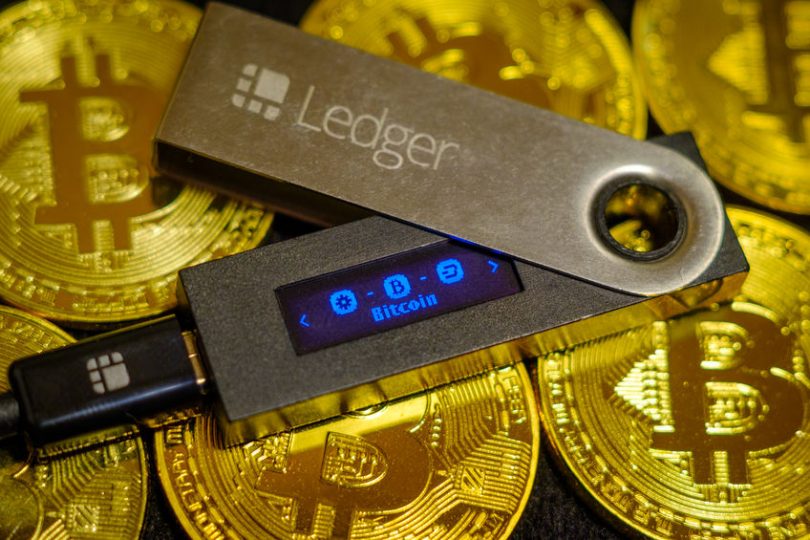In the world of cryptocurrencies, security and accessibility are paramount. Whether you’re trading, investing, or simply holding cryptocurrency, a crypto Ledger wallet serves as the critical tool that helps you manage and secure your digital assets. In this article, we’ll explore the importance of crypto wallets, their types, and how to choose the best one for your needs.
What is a Crypto Wallet?
A crypto wallet is a digital tool that allows users to store, send, and receive cryptocurrencies like Bitcoin, Ethereum, or Litecoin. Unlike traditional wallets that hold physical cash, crypto wallets store cryptographic keys—private and public keys—that are essential for authorizing transactions on a blockchain.
- Public Key: This is like an address where others can send you cryptocurrency. Think of it as your bank account number.
- Private Key: This is a secret code that allows you to access and manage your cryptocurrency. Only you should have this key. If someone else gets access to it, they can control your funds.
Why Do You Need a Crypto Wallet?
When you buy cryptocurrency, it’s stored on the blockchain network. However, the crypto exchanges or platforms where you buy them don’t always store your assets in a way that gives you full control over them. A crypto wallet ensures you have direct access to your funds and keeps them secure from potential threats.
Without a wallet, you could be at risk of losing your crypto to hacking, fraud, or exchange insolvency. By using a crypto wallet, you get full ownership and control over your assets.
Types of Crypto Wallets
Crypto wallets come in various forms, each offering different levels of security and convenience. Generally, they fall into two broad categories:
1. Hot Wallets (Software Wallets)
Hot wallets are connected to the internet, making them more accessible for quick transactions. These wallets are ideal for frequent traders or those who need easy access to their funds.
- Desktop Wallets: Installed on your computer, these offer control and security but are vulnerable to malware and hacking if your computer is compromised.
- Mobile Wallets: Available as apps on your smartphone, these are convenient and user-friendly for everyday use. However, they carry the risk of device theft or loss.
- Web Wallets: Hosted on the cloud, web wallets allow access from any internet-enabled device. While easy to use, they’re less secure than other options since the private keys are stored online.
2. Cold Wallets (Hardware Wallets)
Cold wallets are offline and therefore provide a much higher level of security. These wallets are not connected to the internet, reducing the risk of hacking. They’re generally used for long-term storage.
- Hardware Wallets: These are physical devices, such as USB drives, that store your private keys offline. Popular examples include Ledger and Trezor. Since they are not connected to the internet, they are far more resistant to cyber threats.
- Paper Wallets: A paper wallet is a physical printout of your private and public keys. Though highly secure against digital threats, paper wallets can be lost, stolen, or destroyed if not carefully stored.
How to Choose the Right Crypto Wallet?
Choosing the right crypto wallet depends on your needs and how you intend to use your cryptocurrency. Here are some factors to consider:
- Security: If you’re holding a significant amount of cryptocurrency or planning long-term storage, a hardware wallet (cold wallet) is highly recommended due to its superior security.
- Ease of Use: For beginners or those who need to make regular transactions, a mobile or web wallet may offer the convenience of quick access.
- Backup and Recovery: Ensure the wallet you choose offers backup options and a recovery process in case you lose access to it.
- Supported Cryptocurrencies: Different wallets support different cryptocurrencies. Make sure the wallet you select supports the coins and tokens you want to store.
Best Practices for Crypto Wallet Security
- Keep Your Private Key Safe: Never share your private key. It’s essential to keep it offline or store it securely in a password manager.
- Use Two-Factor Authentication (2FA): When available, enable 2FA for an additional layer of protection.
- Backup Regularly: Make backup copies of your wallet (whether digital or physical) to prevent loss due to device failure or accidental deletion.
- Avoid Public Wi-Fi: Never access your crypto wallet using public Wi-Fi, as it could expose your private keys to hackers.
